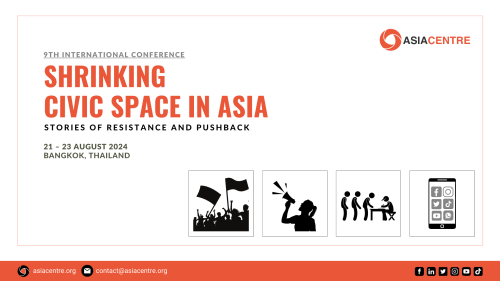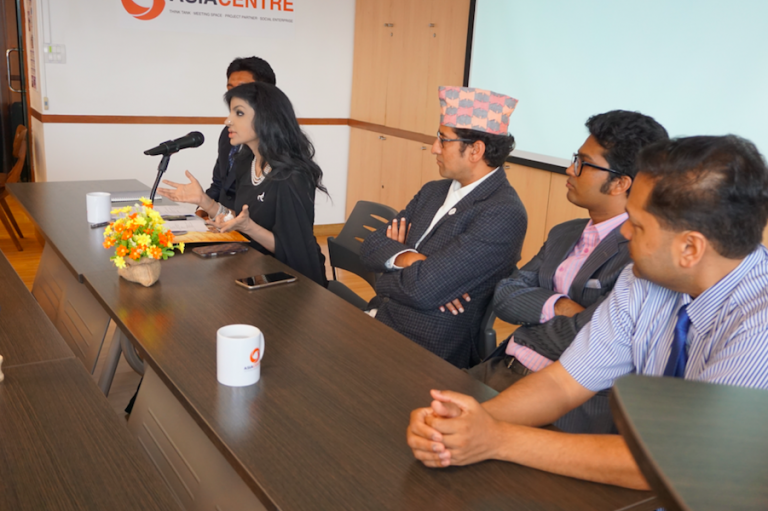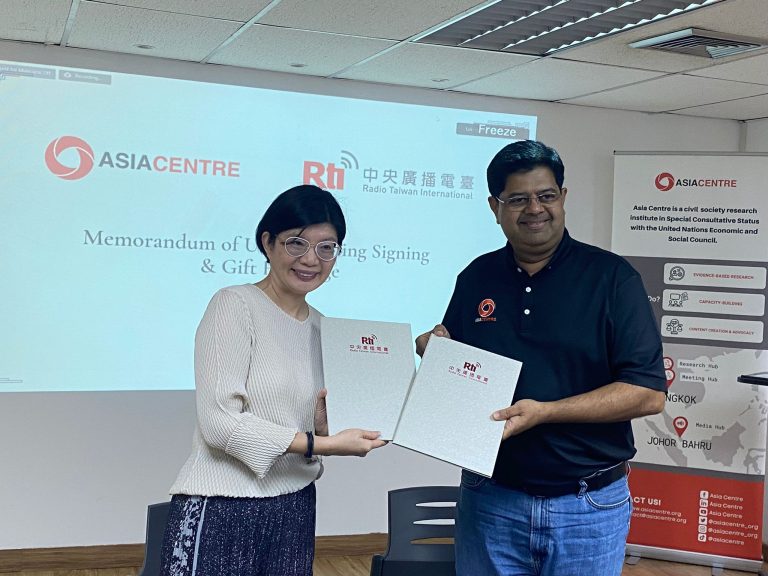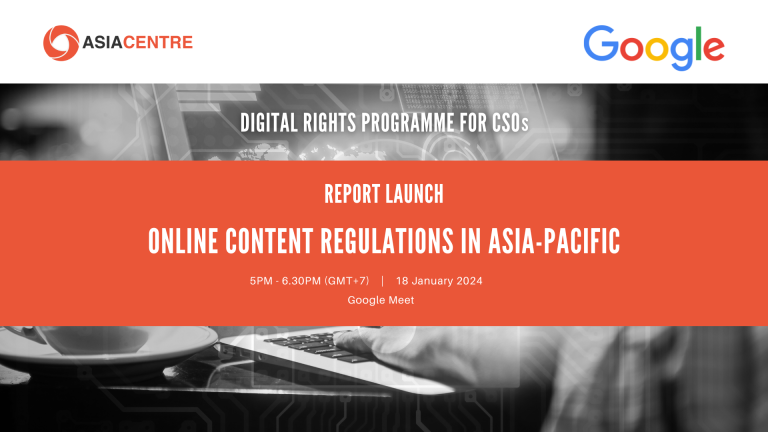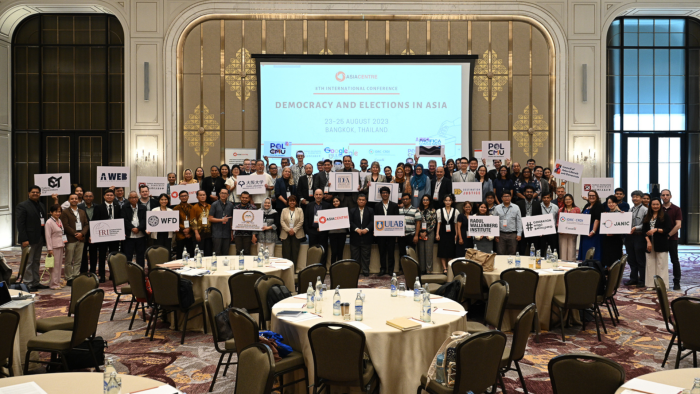
From 23 to 25 August 2023, Asia Centre convened its 8th International Conference on “Democracy and Elections in Asia”. The conference marked a return to fully on-site participation, with over 130 attendees hailing from more than 20 countries. Asia has been buzzing with elections since 2022 with the Presidential Election in the Philippines, South Korea, and Sri Lanka, the Chief Executive Election in Hong Kong, General Elections in Malaysia and Nepal, and Gubernatorial Elections in Japan. 2023 continued with the Presidential Elections in Bangladesh, China, and Singapore, General Elections in Cambodia and Thailand, and State Elections in Malaysia. More elections will take place in 2024 in India, Indonesia, and Taiwan. Hence, the conference was timely to examine the relationship between democracy and elections and exchange experiences from Asia.
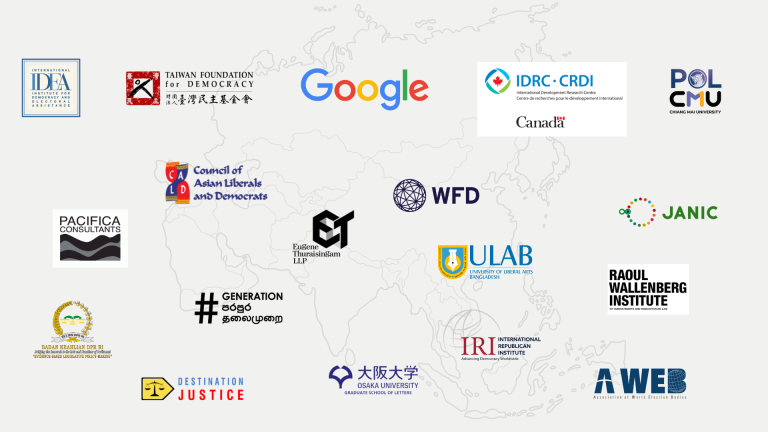
For the 2023 conference, Asia Centre established title partnerships with The International Institute for Democracy and Electoral Assistance (International IDEA), The Taiwan Foundation for Democracy (TFD), The International Development Research Center (IDRC), Chiang Mai University, and Google; panel partnerships with 13 organisations and institutions: Badan Keahlian DPR RI – Expertise Agency of The Indonesian House of Representatives (BKD), The Council of Asian Liberals and Democrats (CALD), Destination Justice, Thuraisingam International, Hashtag Generation, The International Republican Institute (IRI), The Association of World Election Bodies (A-WEB), Graduate School of Letters, Osaka University, Pacifica G.K., The Asia Foundation, Media Studies and Journalism Department, University of Liberal Arts Bangladesh (ULAB), Westminster Foundation for Democracy (WFD), and The National Democratic Institute (NDI). Additionally, the Japan NGO Center for International Cooperation (JANIC) and Raoul Wallenberg Institute of Human Rights and Humanitarian Law were two organisations that engaged as participant partners.
Across 21 panels, 90 speakers engaged with the audience, with 53% male and 47% female presenters. Throughout the three days, the following major themes were discussed: the role and activism of youth, women, minority groups and social movements in democratic political participation; the impact of law, money, technology and social media towards electoral behaviours and processes; and on the competency of electoral institutions in pursuing accountability and implementation of anti-corruption measures. Additionally, six country panels covered Myanmar, Thailand, Japan, Indonesia, Sri Lanka and Bangladesh, providing an insider look into these nations’ experiences in building democratic resilience.
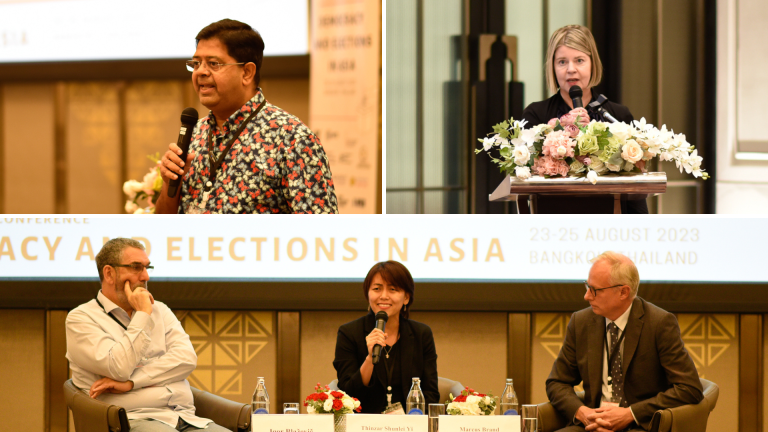
The inaugural evening featured a warm welcome to Thailand from Dr. James Gomez, Asia Centre’s Regional Director, and Leena Rikkilä Tamang, Director for Asia and the Pacific at International IDEA.
The opening panel, hosted by International IDEA, explored a range of issues regarding elections under the current junta regime and prospects of democratic elections for Myanmar’s future. The panel of distinguished country experts and activists unanimously agreed that civil society actors should withhold support for the forthcoming elections until the junta regime can guarantee fair and equitable elections for all of its citizens. Thus they highlighted the need for a more inclusive political participation for ethno-religious communities, women, and youth.
The second day started with official welcome remarks from Dr. James Gomez, followed by remarks by representatives of the conference’s title partners: Markham Erickson, Vice President of Google’s Government Affairs and Public Policy, Leena Rikkilä Tamang, Director for Asia and the Pacific of International IDEA, Caroline Ford, Director of International Development Research Centre (IDRC)’s Democratic and Inclusive Governance Division, and Associate Professor Dr. Pailin Phujeenaphan, Dean of the Faculty of Political Science and Public Administration, Chiang Mai University.
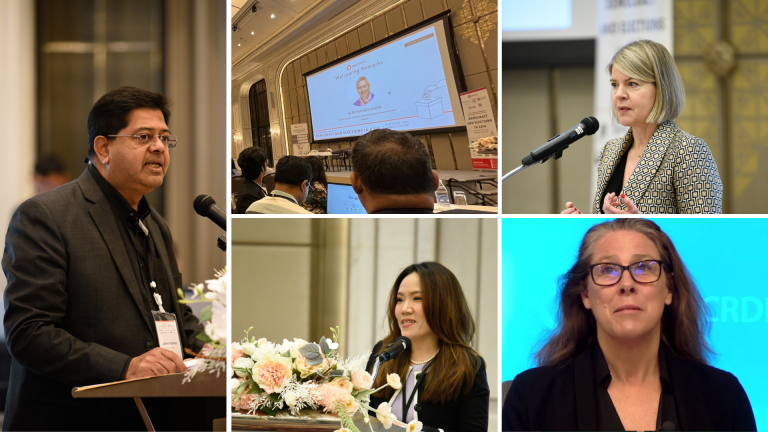
Dr. James Gomez informed the audience on how the annual conference has evolved over the years to become a strategic space for INGOs and their partners to not just convene to discuss key democracy and human rights issues, but also to engage in networking with representatives from civil society organisations, diplomatic missions, international institutions, parliaments, technology companies, and universities (see speech here). In its eighth year, Asia Centre’s international conference has become a premier regional event.
Markham Erickson of Google provided an overview of how this technology company contributes to supporting democratic electoral processes by making official information about elections easily accessible to the voters on its platforms, protecting electoral information against disinformation online, building free products to enhance cybersecurity protection, and supporting political parties in managing their digital presence online through its various platforms.
Caroline Ford of IDRC highlighted the need to build and protect a vibrant and inclusive civic space to support democratic values. Acknowledging the threats of disinformation disorders and electoral violence, IDRC is determined to provide its support for transformative research on democracies to not only strengthen the civic space but also to ensure continuous engagement with the public mandate throughout the electoral process.
Leena Rikkilä Tamang of International IDEA remarked on the importance of addressing both traditional and modern challenges to election integrity happening across the Asian region, and International IDEA strives to address two of the core issues: the disenfranchisement of migrants towards political suffrage and the usage of technology to facilitate accessible electoral processes in its two other panels in the conference.
Associate Professor Dr. Pailin Phujeenaphan of Chiang Mai University underlined the importance of having a safe and open platform for academics and ground actors to convene and discuss issues on democracy, to enable knowledge sharing and mutual learning from each others’ experience in dealing with the regression of electoral integrity.
The welcome remarks were then followed by a Memorandum of Understanding (MOU) signing ceremony between Asia Centre and Japan NGO Center for International Cooperation as represented by Patcharee Rattanarong, Centre Manager of Asia Centre and Asako Haga, Manager of THINK Lobby/JANIC. JANIC has been a partner of Asia Centre for many years, having collaborated in producing reports and digital media content, most recently on the report “Foreign Interference Laws in Southeast Asia: Deepening the Shrinkage of Civic Space in February 2023. Alongside the report, this collaboration produced a podcast series, a collection of infographic posters and an informative infographic video to disseminate further the report’s findings to the larger public.
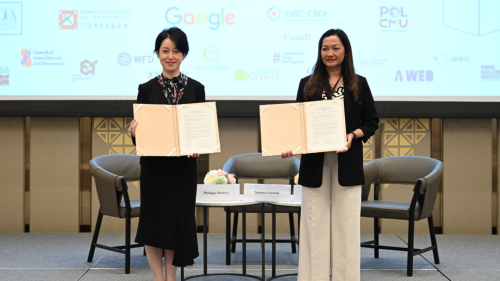
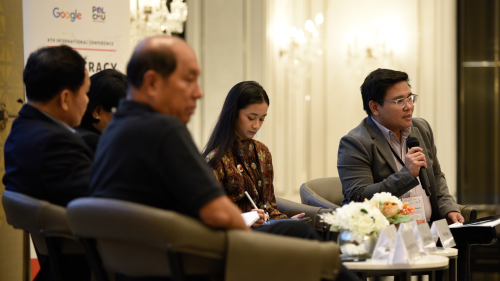
On the second day, speakers from across eleven panels addressed challenges to democratic integrity in the region threatened by authoritarian regimes, lack of accountability in handling political corruption, and modern-day challenges brought upon by social media in disseminating disinformation, to instigate political violence. A constant message reverberates across all panels, which is the need for mutual cooperation and support across all fields involving local and international civil society actors and government agencies to protect electoral integrity and maintain dynamic forms of democracies in the region.
On the third and last day of the conference, ten panels consisting of university researchers, government representatives, activists and media organisations continued the discussion on the importance of creating an inclusive political environment to include the political participation of women, youth and minorities communities, and sharing experiences across different countries in handling legal challenges in electoral litigation, combatting media-related threats to electoral integrity, and the future of democracy of their nations.
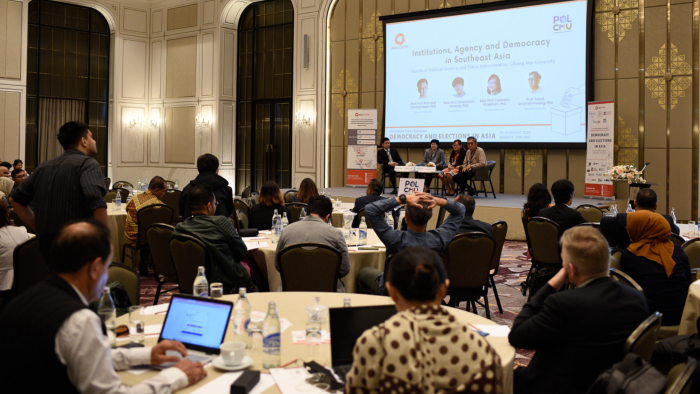
The conference culminated in a closing dinner where partners could network and discuss further collaborations. Asia Centre also announced the 9th International Conference on “Shrinking Civic Space in Asia: Stories of Resistance and Pushback”. Scheduled for 21 to 23 August 2024, in Bangkok, Thailand, this forthcoming event aims to further engage with these critical issues.
As Asia Centre’s premier annual event, the conference offers a platform for partners to share programme outcomes and foster future collaborations. Over time, it has grown into a nexus for diverse stakeholders to engage in key human rights discussions.
For more insights into the 8th conference’s title partners and their panels, explore the following links:
Watch the TikTok video highlights of the conference here.
Photos of the conference are now available on the Centre’s Facebook page.
The International Conference is Asia Centre’s annual event where it brings together its partners to share the outcomes of their programmes and network for future collaborations. Over the years, the conference has become a platform for a range of actors to meet and discuss key human rights issues. If you would like to become a Conference partner for Asia Centre’s 9th International Conference “Civic Space in Asia: Stories of Resistance and Pushback” or explore other collaboration opportunities, email us at contact@asiacentre.org.
For more information on the 9th Conference, click here.

